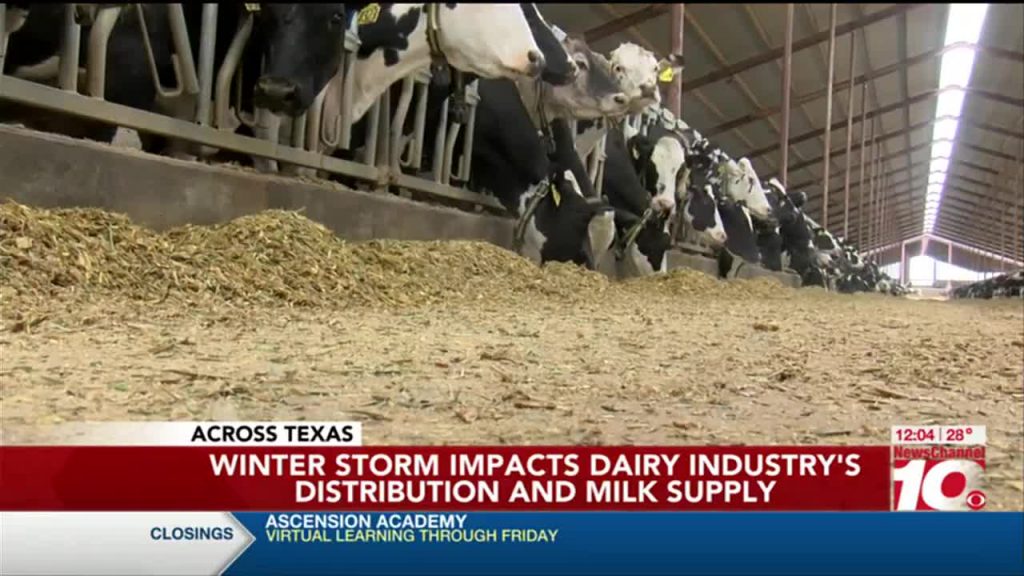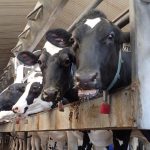
“Trying to keep equipment running in low temperatures is hard. Trying to get transportation in and out to pick up the milk we produce is a big challenge,” said Darren Turley, executive director of Texas Association of Dairy. “We’re just having some plants shut down, and icy road conditions…so we may see some spots where inventory is a little restricted. With this long of time without production being delivered and things like that, the consumer will kind of catch up to the supply.”
Plants have shut down due to a shortage of natural gas causes by winter weather.
Many dairy farms are unable to heat up and pasteurize their milk, as they have been asked to shut down so area residents have electricity.
“We’ve now seen plants have a situation…where they cannot get their natural gas so they can’t run their equipment, which is primarily their pasteurizers, because you have to heat milk up to pasteurize it,” explained Turley. “Without that, they’re not able to process milk and some have been curtailed in their areas to not have any power to ensure the residents in the area still have heat. We are having some plant shutdowns. We’re having to move milk greater distances. ”
Unable to process milk themselves or get it to a processing plant due to hazardous road conditions, the milk is going to waste.
“There is a limiting factor. The cows have to be milked. We can’t tell them we have a problem with distribution and we’ll wait until tomorrow,” said Steve Martin, owner and nutritionist of Dairy Nutrition and Management Consulting. “So maybe the least flexible thing is that if that cow is used to being milked twice a day, we have to do that no matter what, and figure out the rest of the logistical problems later.”
The winter weather also results in lost milk production.
Texas dairymen say the health of the cow is always first priority.
So when temperatures get below freezing, the focus shifts away from milk production and towards caring for the animal.
Farmers must pay for extra feed, special wind blocks and bedding to keep cows warm.
Increasing their feed and fiber intake allows the cow to increase its internal body temperature, but this causes the cow’s metabolism to focus on keeping warm and breaking down food rather than producing milk.
“There’s also the cost of lost milk production,” explained Martin. “These cows and these dairy are really fined tuned biological machines that are producing very efficient milk. When we get weather like this, all of that kind of goes to the side a little bit and we focus on keeping the cows healthy and happy. We do lose some sellable marketing milk production just because the cows are using their metabolism to keep warm instead of make milk.”
However, dairy industry experts say due to a large and complex chain of connected dairy farms, they should be able to keep liquid milk on the shelves
“The distance between the cow and grocery store is very short, not as flexible, and that’s what we’ll make sure is filled first,” explained Martin. “The other things, whether its butter, or cheese, or whole milk power, those things can adjust to make sure we have milk for people to buy at the store.”
All of these factors have an economic impact on dairy farmers.
“There are costs for increased feed intake. They have to buy the straw and the cornstalks, they have to pay for the diesel to run the machines, they have to pay for labor,” explained Martin. “A lot of these dairies turn into 24 hour shifts almost, maybe they bring cots in so the employees may sleep because the roads may be bad. This is all done to keep the cows comfortable and healthy.”
With 80% of the state’s milk coming from Panhandle dairies, this economic loss may trickle into other parts of our economy.
























